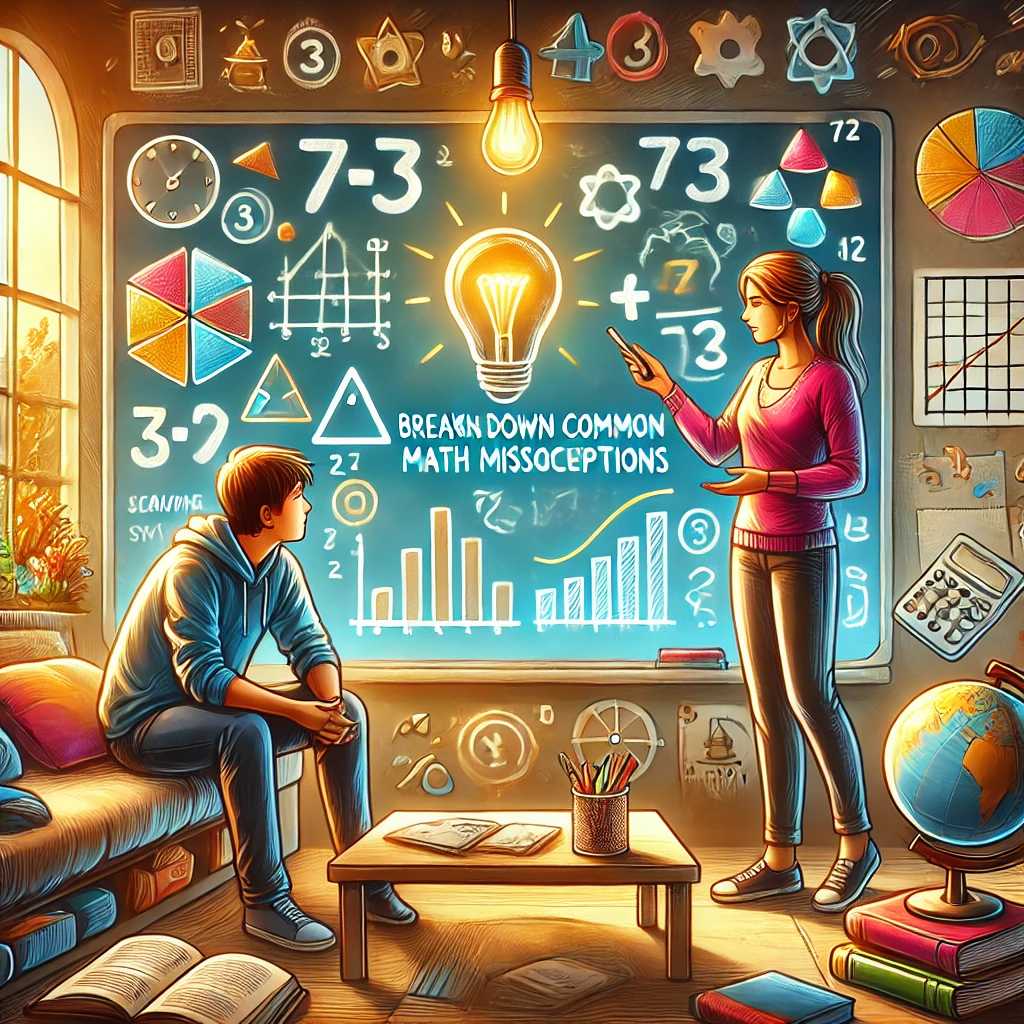
Mathematics, often considered the universe’s language, can be fascinating and challenging. As a tutor navigating the intricate landscape of math education. It’s not uncommon to encounter students grappling with persistent misconceptions.

Let’s explore some common math misunderstandings and shed light on how a tutor’s perspective can help unravel these knots.
Misconception ONE: Math is Only About Memorization
Many students approach math with the belief that it’s all about memorizing formulas and procedures. However, a tutor understands the importance of conceptual understanding. Math is not just a set of rules to follow but a language that helps us make sense of the world. Tutors strive to cultivate a deep understanding of mathematical concepts rather than encouraging rote memorization.
Misconception TWO: Mistakes Are Failures
The fear of making mistakes can hinder a student’s progress. Tutors emphasize that mistakes are opportunities to learn and grow. By creating a supportive environment where errors are viewed as stepping stones to understanding, tutors help students develop resilience and a positive attitude toward problem-solving.
Misconception THREE: I’m Just Not a Math Person
This self-limiting belief is a common roadblock. Tutors work to dispel the notion that mathematical ability is innate. Instead, they focus on nurturing a growth mindset, where effort and perseverance are valued over innate talent. Every student has the potential to excel in math with the right guidance and mindset.
Misconception FOUR: Math is Only for the Gifted
Some students feel overwhelmed, thinking that math is only for the “gifted” or exceptionally talented. Tutors challenge this notion by providing personalized support, breaking down complex concepts into manageable steps, and fostering a sense of achievement through small victories. Math is for everyone, and tutors are instrumental in making it accessible to all students.
Misconception FIVE: Speed Equals Proficiency
The belief that solving problems quickly equates to mastery can lead to superficial understanding. Tutors stress the importance of depth over speed. They encourage students to take the time to truly understand the underlying principles, reinforcing the idea that a strong foundation will lead to quicker and more accurate problem-solving in the long run.
Misconception SIX: Math is Isolated from Real Life
Students often wonder about the real-world applications of the math they are learning. Tutors bridge this gap by illustrating how math is woven into everyday life, from budgeting and cooking to scientific research and technology. Understanding the relevance of math fosters a deeper appreciation for the subject.
Conclusion
a tutor’s perspective goes beyond teaching formulas; it involves breaking down misconceptions and building a foundation of understanding and confidence. By fostering a positive mindset, emphasizing conceptual understanding, and connecting math to real-life scenarios, tutors play a pivotal role in shaping students’ attitudes toward math. After all, the journey to math proficiency is not just about reaching the destination but enjoying the exploration along the way.